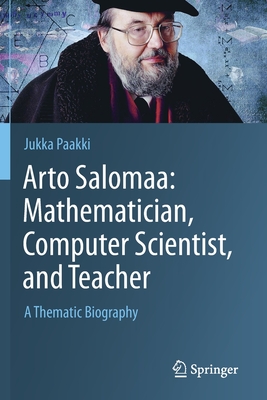Tales of Electrologica: Computers, Software and People
Alberts, Gerard, Groote, Jan Friso
- 出版商: Springer
- 出版日期: 2024-01-06
- 售價: $1,780
- 貴賓價: 9.5 折 $1,691
- 語言: 英文
- 頁數: 201
- 裝訂: Quality Paper - also called trade paper
- ISBN: 3031130359
- ISBN-13: 9783031130359
海外代購書籍(需單獨結帳)
商品描述
Manufacturing computers in series was quite a feat in the 1950s. As mathematical as it gets, the machines discussed here were called X1 and X8.
The industrial achievement combined with the background in a mathematical research center made the company Electrologica a legend in Dutch computing. The tales in this book are told by those who have a right to tell. Highly engaged professionals take readers back to their pioneering work with the machines and in retrospect unveil some of the values, which went without saying in the 1960s.
The reflections of first hand experiences combine well with the second thoughts of historical research into archival sources. Historians Huub de Beer and Gerard Alberts offer a view into the boardrooms of the local enterprise Electrologica, and of the electronics multinational Philips. Where pioneers and historians meet in an inspiring dialogue, the reader gains a view on the often implicit decisions constituting the field.
Fortuitously, a copy of the X8 was retrieved from Kiel, Germany, and put on display at Rijksmuseum Boerhaave, Leiden. Sparked by the very material presence of an X8, the present book takes stock of the state of historiography of Electrologica.
Gerard Alberts is an associate professor in History of Digital Cultures, retired from the University of Amsterdam. Jan Friso Groote is a full professor of Formal Methods at the Eindhoven University of Technology.
作者簡介
Gerard Alberts (1954) is an historian of digital cultures and historian of mathematical thought. He graduated in mathematics and took his PhD cum laude in History. Gerard's key contribution to the history of mathematical thinking is pinpointing the rise of mathematical modeling in the middle of the twentieth century. In history of computing his focus has been on the history of software, and history of hacker culture. Recent work has been on webarchaeology. He his member of the editorial board of Annals of the history of computing and of Internet histories.
Gerard Alberts served the research Eurocores project "Software for Europe" (2007-2011) as its project leader. He is retired associate professor history of digital cultures at University of Amsterdam.
Gerard Alberts is the editor of the Springer series History of Computing.
Jan Friso Groote (1965) is a full professor in Formal Methods at Eindhoven University of Technology. His interest is in efficiently proving the correctness of the software in computer controlled systems. This for instance led to the book, Modeling and Analysis of Communicating Systems, The MIT Press 2014. Before commencing in Eindhoven, in 1997, he studied Computer Science at Twente University and wrote a PhD on process algebra at CWI, Amsterdam (1991), where he later became a leader of the research group SEN2.



















